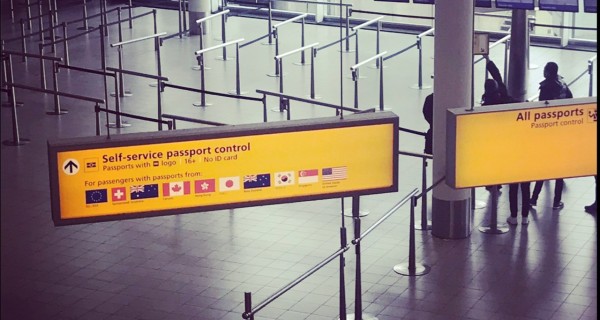Overstay and entry ban: how does it work?

Citizens of approximately 60 countries can enter the Schengen Zone without a short stay visa (hereafter: "visa"). They can stay up to 90 days out of every 180 days in the Schengen Zone. Citizens of other third countries need to acquire a visa beforehand. Their visas have a maximum duration of stay of 90 days out of every 180 days. What happens if one overstays his visa or the visa free period?
First of all, we need to point out that the different EU member states can have different rules with respect to the consequences of an overstay. In this article, we shall explain the potential consequences of an overstay from the perspective of Dutch laws.
On the basis of Dutch laws, one who overstays his visa or visa free period risks getting an entry ban (“inreisverbod” in Dutch). The length of the entry ban depends on the question as to how long a third country national has overstayed his visa. If one has overstayed his visa by 3 days or less, he will not receive an entry ban. If one has overstayed his visa by more than 3 days but no more than 90 days, he can receive a 1 year entry ban. If someone has overstayed his visa by more than 90 days, he can receive a 2 year entry ban.
How does it work in practice?
In practice, when a third country national leaves the Schengen Zone, the border guard will examine the issue as to whether one has overstayed his visa or visa free period. At this moment, there is not a Schengen-wide digital system in which the border guards can verify the arrival and departure dates. For the time being, the border guards have to rely on the stamps in the passport. Nevertheless, the EU are planning to launch a digital system called Entry/Exit System (EES) in near future. The arrivals and departures will be automatically registered in the EES when (most) third country nationals cross an EU external border. Nevertheless, as discussed above, the Schengen States can have different rules with regard to the consequences of an overstay. Some countries can have more stringent rules than others. For example, in Denmark, if one who overstays his visa by 30 days or less, he can get a 3 year entry ban. If one overstays his visa by more than 30 days, he can get a 5 year entry ban.
Please be aware that entry ban applies to the entire Schengen Zone. If one gets a 2 year entry ban from the Dutch Border Police, he cannot enter the entire Schengen Zone during the 2 year period. The pan-European validity of the entry ban is ensured by an alert entered in the Schengen Information System (SIS). Therefore, during the applicable period of the entry ban, one cannot get a visa from any of the 26 Schengen countries.
How can you defend your rights?
Before the Dutch Border Police give someone an entry ban, they should give him the opportunity to present his opinion. Inside the airport, a passenger does not have the time to give his opinion, as the plane is about to depart. If a traveller insists on giving a detailed opinion inside the airport, it is very likely that he will miss his flight. Therefore, in practice, the Dutch Border Police will give the third country national a leaflet informing the traveller about his rights and the possibility of submitting his arguments in writing. The traveller will get 28 days to submit his opinion in writing. The Border Police will make a decision as to whether an entry ban will be given and how long the entry ban will be. When making the decision, the Dutch Border Police must take someone’s written opinion into consideration. Over the last several years, Mynta Law have successfully helped a number of clients challenge the Dutch Border Police’s entry ban intention. In those cases, the Dutch Border Police decided not to give our clients an entry ban or the administrative court quashed the Dutch Border Police's decision.
If I overstay my Dutch residence permit, will I receive an entry ban?
If your Dutch residence permit has expired, you will not receive an entry ban provided that you leave the Schengen Zone within the so called ‘reasonable period’ via Amsterdam Schiphol airport. Nevertheless, if your residence card is about to expire or has expired, please feel free to contact Mynta Law. Sometimes, we can help our clients acquire another type of residence.
Have you received an entry ban from the Dutch Border Police? Please do not hesitate to contact Mynta Law.

Related articles
- Reasons why you should swap your highly skilled migrant visa for a Blue Card
- Unemployment benefit and its impact on your Dutch residence rights
- How can an American entrepreneur obtain Dutch permanent residence?
- Children of a foreign diplomat in the Netherlands
- Dutch student visa: everything that you need to know
- Possibly longer search period for some (settled) highly skilled migrants
- Introducing the Entry/Exit System: Are you ready for the EES?
- Dutch American Friendship Treaty: how to renew your entrepreneur permit successfully
